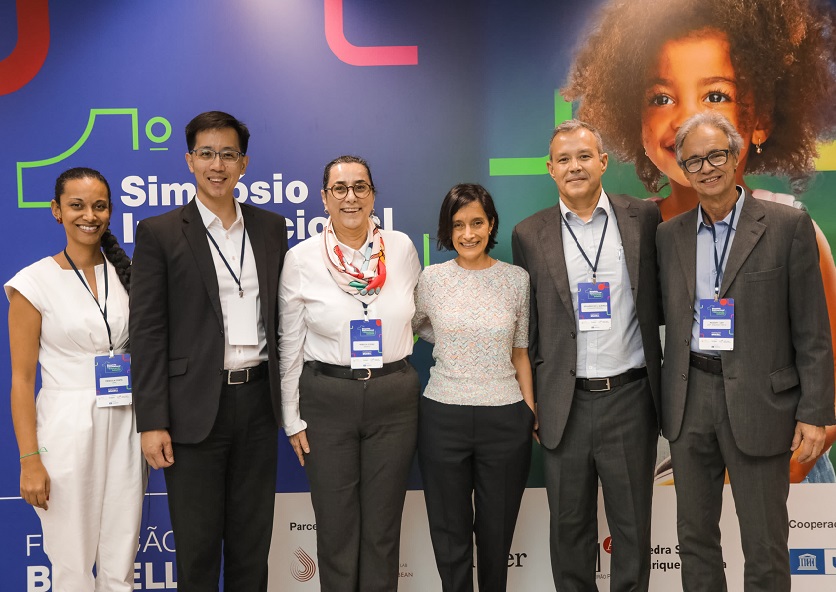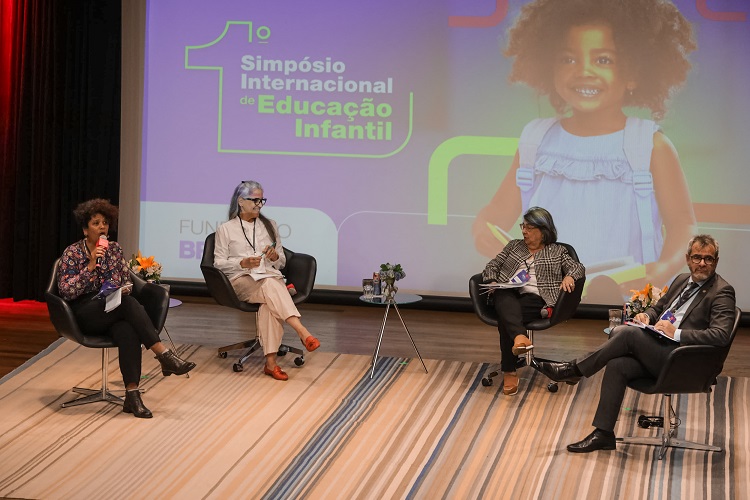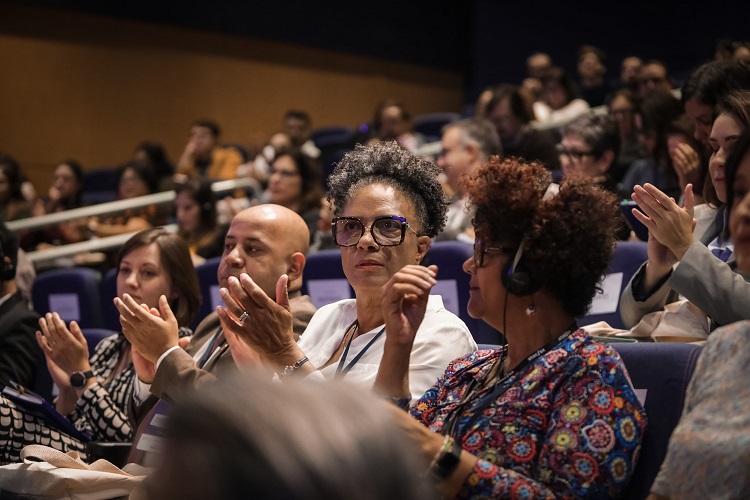Education Policy and Results: It’s (almost) All in the Implementation
Getting the right education policies into place is hard enough. But more often than not, implementation is where they fall apart. Let us share two striking findings. Find out!

This Thursday, the 27th, the 1st edition of the Early Childhood Education Symposium of the Bracell Foundation, a philanthropic entity with the purpose of leveraging the transformative power of education in Brazil, was held. With the participation of big names who work with research and public policies on early childhood education, such as J-Pal, UNESCO, MEC, Undime, Consec, Consed, USP, UFPR, FGV, Singularidades Institute, Carlos Chagas Foundation, Todos Pela Educação movement among others, the initiative addressed the evidence on the impacts of quality early childhood education on children’s development and learning and the urgency of investments in early childhood education and pre-school.
“We want everyone to leave this Symposium with a sense of the importance of advancing in early childhood education. We need to look at access and quality with a focus on today. If we offer quality early childhood education, mainly serving our children in situations of greater vulnerability, these individuals will be able to reach their full potential”, defended the director-president of the Bracell Foundation, Eduardo Queiroz.
In her talk, Nobel laureate in economics and co-founder of the J-PAL (Abdul Latif Jameel Poverty Action Lab) research center, Esther Duflo, highlighted that the development of a country depends on the quality of education given to its children and young people. The J-Pal center, in partnership with the Bracell Foundation, began mapping initiatives that improve the learning of preschool children (4 and 5 years old) in Brazil to, in a second stage of the project, replicate those that were successful in São Paulo, Bahia and Mato Grosso do Sul.

Also during the event, Carolina Belalcazar Canal, Education specialist at the UNESCO Regional Office in Uruguay, presented the Tashkent Declaration, which aims to reaffirm the right of all children to quality early childhood education and early childhood care, in addition to “renew and reinforce political commitment and action, and further mobilize Member States and the international community to develop rights-based and inclusive early childhood education policies and programs; implement effective and responsible multisector systems and partnerships for early childhood education; and increase equitable and effective investment in early childhood education, including official development assistance (ODA), as an essential and integrated part of strategies to promote lifelong learning, sustainable development and gender equality.”
The Symposium was attended by authorities from the Ministry of Education (MEC). Alexsandro Santos, Director of Policies and Guidelines for Integral Basic Education, highlighted the importance of advancing evaluation in early childhood education to tackle inequality, qualify services and invest more effectively. For her part, Rita Coelho, General Coordinator of Early Childhood Education, presented the recent collective and democratic process of defining quality parameters that awaits regulation by the National Education Council.
Aimed at researchers, public managers and third sector organizations, the program also promoted discussions on the challenges of implementing public policies on early childhood education. “We are very pleased with the integration promoted by the first Bracell Foundation Symposium, which brought together important actors interested in increasing the quality of early childhood education in Brazil. Together with relevant institutions, such as UNESCO, we will seek to explore ways to achieve the goals of the 2030 Agenda, especially SDG 4”, says Eduardo de Campos Queiroz.

The Symposium also included the participation of Rebeca Otero (UNESCO Brazil), Gabriel Corrêa (Todos Pela Educação), Aléssio Costa Lima (Undime), Eliana Bhering (Carlos Chagas Foundation), Lucimar Dias (UFPR), Bárbara Born (Singularidades Institute), Bernadete Gatti (IEA/ USP), Claudia Lagos (Ministry of Education of Chile), Mozart Ramos (IEA/ USP), Frederico Amâncio (SME Recife/ CONSEC), Helio Queiroz Daher (SEE Mato Grosso do Sul / CONSED), Henrique Paim (Fundação Getúlio Vargas) and Marcia Campos (Bem Comum Association).
The event marks the debut of the Bracell Foundation, which will have early childhood education as its main pillar of activity and will also support partners working in the field of early childhood and leadership development. The institution already has partnerships with renowned institutions, such as Todos pela Educação, J-Pal, Insper and UNICEF, and seeks to work in collaboration with governments, other third sector entities and universities.
“There is a robust set of evidence proving that quality early childhood education can positively transform a person’s life, which is why we work to strengthen public policies for this stage, especially preschool. One of our goals, through research and evaluation, is to identify promising solutions to improve our children’s learning. From this point on, our challenge will be, together with municipal and state governments, to scale up these solutions, always seeking to ensure that Brazilian children reach their full potential”, explains Queiroz. The Bracell Foundation’s pillars of action are aligned with the Sustainable Development Goals (SDGs) of the United Nations (UN) 2030 Agenda.
01
Jul
Getting the right education policies into place is hard enough. But more often than not, implementation is where they fall apart. Let us share two striking findings. Find out!
23
Oct
The initiative, carried out in collaboration with the London School of Economics, aims to promote equity in Brazilian public health.
28
Jun
During the Bracell Foundation Symposium, the importance of strengthening public policies, developing leadership and investing in the comprehensive training of children was highlighted.